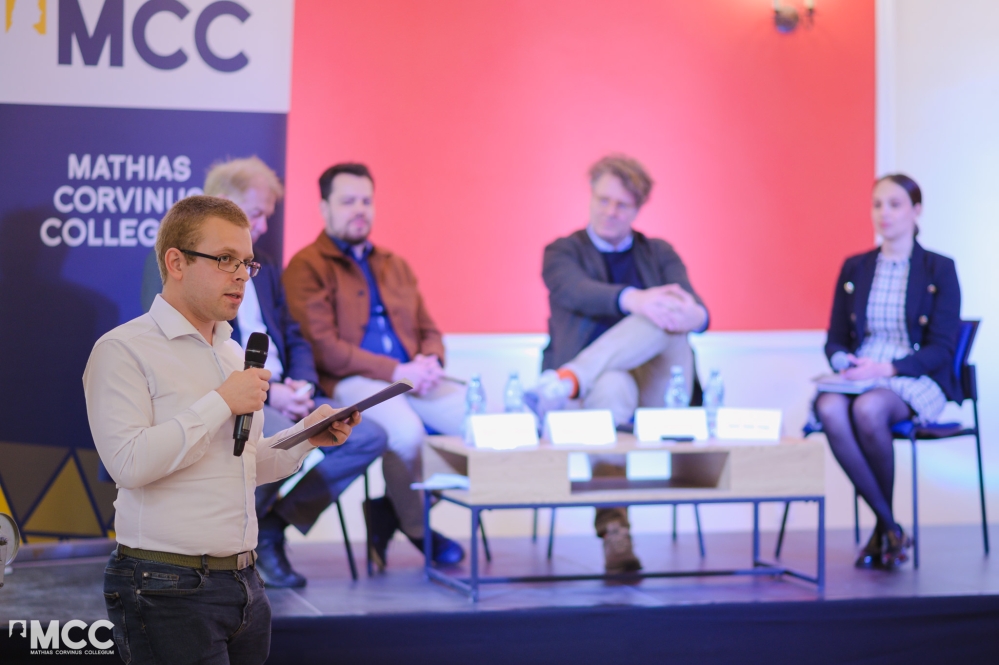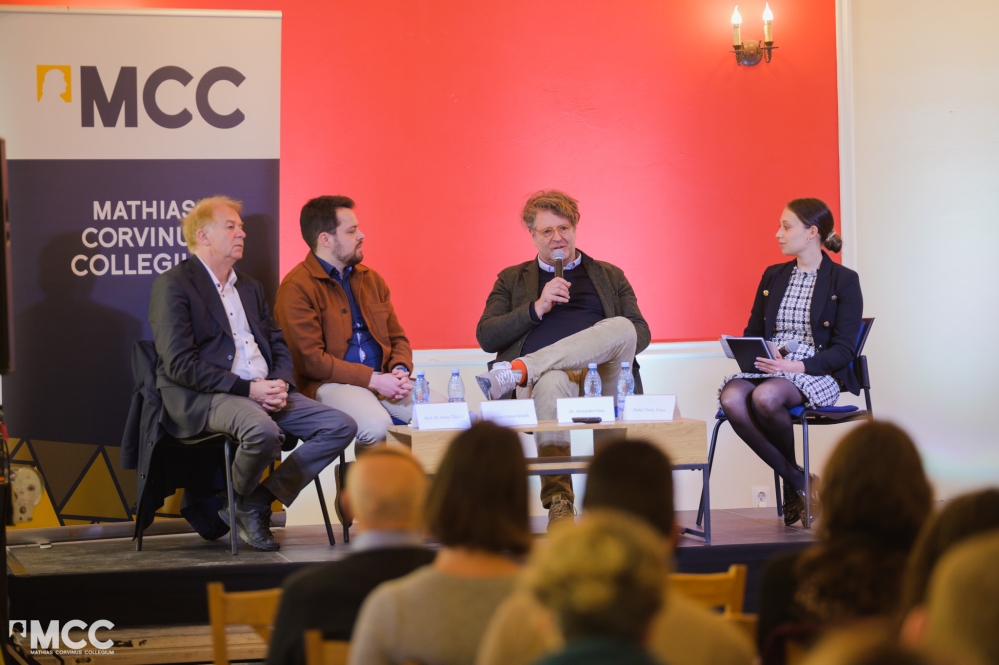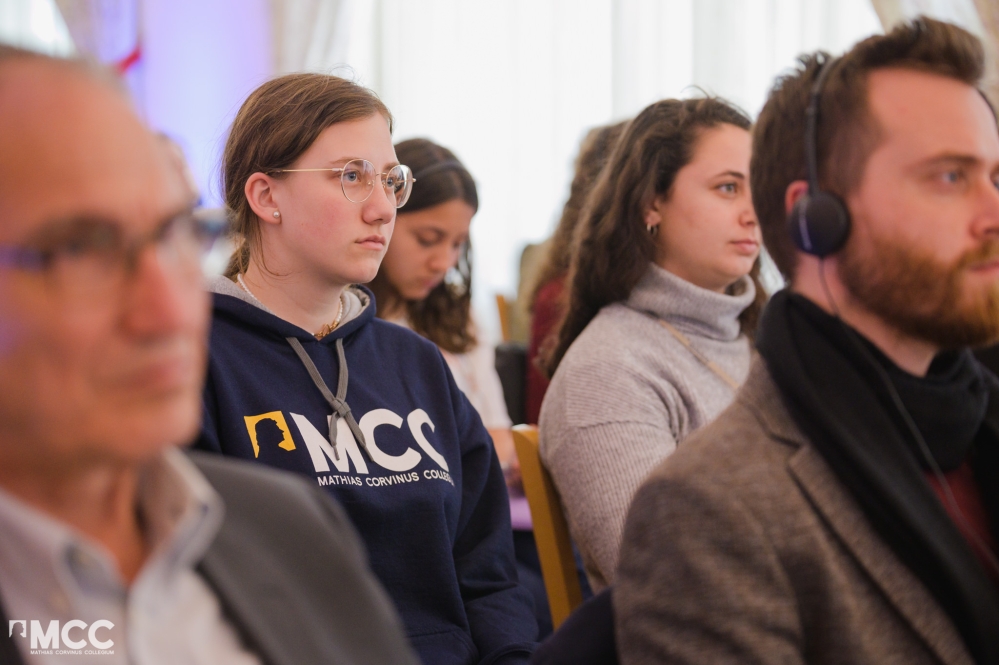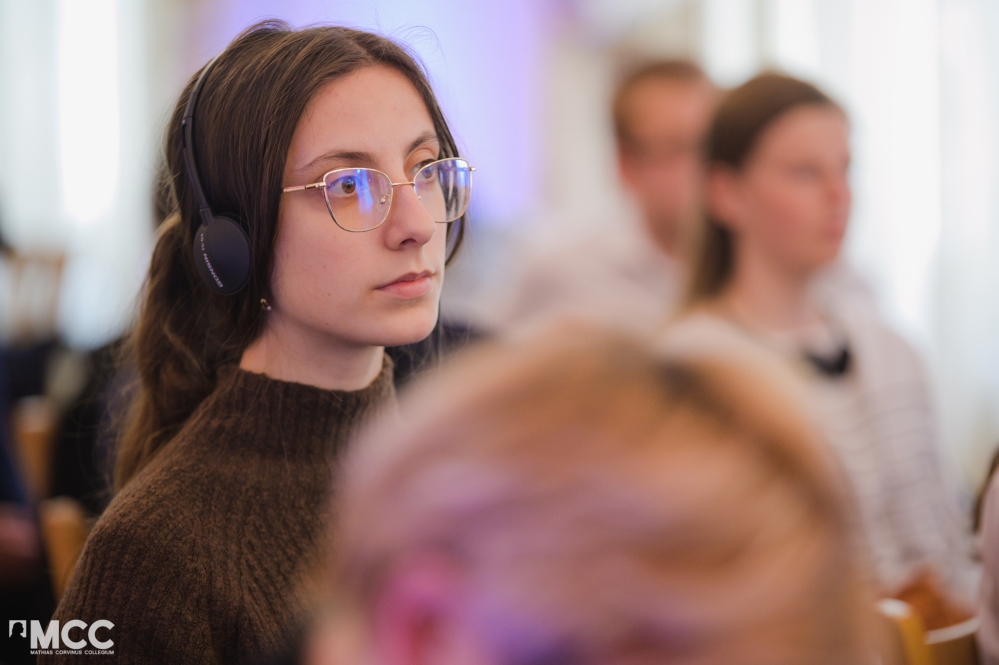Reading time: 3 minutes
For the first time, Mathias Corvinus Collegium (MCC) organised a lecture in German in Cluj-Napoca. On 27 April, invited experts discussed the public and political situation in Germany and the challenges ahead.
Germany has long been seen as a model country, not only in Romania but also in many other European countries. The end of Angela Merkel's 16-year chancellorship, the beginning of the new federal government's term of office, the political loss of the Christian Democratic Union (CDU) and the political rise of the Greens (Grüne) have made it timely to examine German public life. In a panel discussion entitled "Germany in transition?", invited speakers addressed the current political situation, the Russian-Ukrainian war, the immigrant society and Willkommenskultur.
The panel discussion was attended by MCC guest lecturers Prof. Dr Heinz Theisen, political scientist, Dr Alexander Grau, freelance author, publicist, science and culture journalist and Richard Janos Schenk, PhD candidate at the Department of Policy Analysis, TUM School of Governance. The moderator was Tímea Darkó Tünde, Project Coordinator of MCC’s Hungarian-German Institute for European Cooperation.
Commenting on recent changes, Heinz Theisen said: Germany has not invested in its armed forces for thirty years and cannot defend itself. It goes along with the United States’ every adventure because it depends on it. He believes that the German disconnection from reality can be seen, for example, in the fact that its borders remain unprotected, or that in the raging energy crisis, while more and more states are getting into the nuclear industry, Germany is dismantling it. According to Richard Janos Schenk, Europe is a stagnant continent compared to the rest of the world, performing below its potential. Germany is facing a three-party coalition and the parties are finding it difficult to reach agreement as their focus and goals differ.
On the issue of Wilkommenskultur, or the way to welcome immigrants, the invitees said it was an unrealistic dream that the country could cope with more than a million people, as no country could culturally or legally handle that many. According to Alexander Grau, Merkel decided to accept immigrants because of her popularity, and many people liked her for it, but the Chancellor had no elaborate plan to deal with the situation and the evolution of society, and this would mean serious problems for Germany in the long term. Richard Janos Schenk pointed out that the issue of immigration was strongly linked to the labour crisis, but that the German success model had reached its limits. With no major party dealing with German family policy in depth, immigration remains the solution to provide labour and the hope that incoming people will be able to work and integrate.
Alexander Grau added: Immigrants are mostly present in everyday services and if they left, the country would collapse. The expert believes that migration and relocation would not be a problem, but rather the long-term consequences of failed integration are a concern for all Western societies. Borders can be secured, but as long as Europe remains a rich and prosperous society, it will be attractive to billions of people living in poverty, he said. As a solution, he pointed out, people cannot be held back in their search for prosperity, so Europe can either preserve its identity by impoverishing itself or it can become a prosperous continent, and if it cannot hold back the many people, it will take the prosperity to them so they can stay at home.



